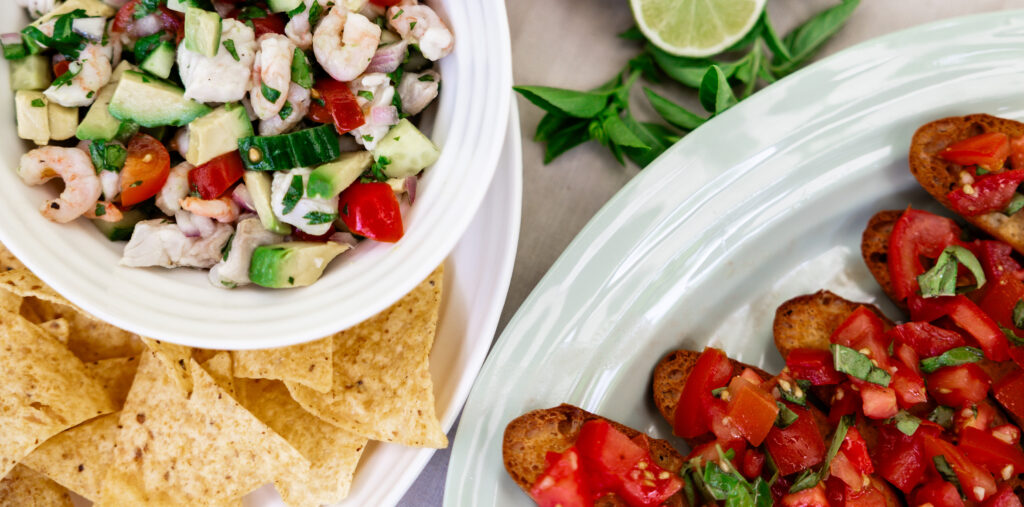– by Trysh Ashby-Rolls –
It used to be said you are what you eat. So, if you’re one of the Tea ‘n Toastie brigade – y’know, only eating toast and spread and drinking tea – what does that make you? Not very healthy. As we age, it’s important to nourish our minds, bodies and spirits. Eating well makes all the difference to our mental acuity, alertness and how well we sleep at night, to our energy level and ability to heal faster from illness or surgery, and is key to emotional balance and a positive outlook.
Many seniors find their eating habits change as the years pass. We can no longer eat three squares a day. We need smaller portions and to snack and nibble between meals. When we were children, our parents or caregivers told us to eat everything on our plate so we’d grow into strong boys and girls. Now we’re in the senior class, there are new reasons to eat up. But, how much should we eat? What should we eat?
According to the U.S. National Institute of Aging, a woman of 50+ who is not physically active needs about 1,600 calories a day, up to 2,000 if she is very active. Her male counterpart needs about 2,000 calories a day if he is not physically active up to a maximum 2,800 calories if he is very active. In real terms that means go for a cup or two of fruit and two-and-a-half cups of veggies a day in a variety of colours. In the calcium department – to keep bones strong – your intake of milk, yoghurt and cheese should be about four cups. Or, if you prefer: tofu, broccoli, almonds and kale.
You require six to seven ounces of grains in the carbs department. These include pasta, bread and cereal. “Whole” in the product description beats white and processed hands down. One slice of bread equals one ounce. As for protein, do the math on how much you need by dividing your body weight in half. A 130-pound woman will need around 65 grams of protein a day. A serving of tuna, for example, has about 40 grams of protein. Vary your sources with more fish, beans, peas, nuts, eggs, milk, cheese and seeds.
It’s also important to drink adequate amounts of fluid to avoid dehydration. Many of us lose our sense of thirst and need reminders to sip water regularly. Set a timer. Use post-it notes. Keep a glass of water by the sink and take a sip each time you go into the kitchen. Dehydration can contribute to constipation, urinary tract infection and even confusion. To say nothing of bad breath.
More tips for eating right might include: reduce your sodium intake; raise your good cholesterol levels (avocado, olive oil, flax seed, salmon, walnuts); add fibre; beware hidden sugar. Read the labels when you shop. Steam instead of boil veggies. Add a multivitamin to your regimen, or at least vitamin B and D. Check with your health care professional first. Go online for recipes; borrow cookbooks from the library if you’re new to cooking for one. Consult a dietician for more information about nutrition, especially if you are overweight or have a particular health concern.
Make mealtimes a pleasure. Set the table with flowers, candles and pretty dishes. Invite friends over for potluck suppers. Invite a new friend to share dinner. Limit the number of times you eat in front of the television, and then choose your dinner companion with as much care as you would in real life. Avoid show hosts and news anchors who give you indigestion. Personally, I like dining with Peter Mansbridge.




